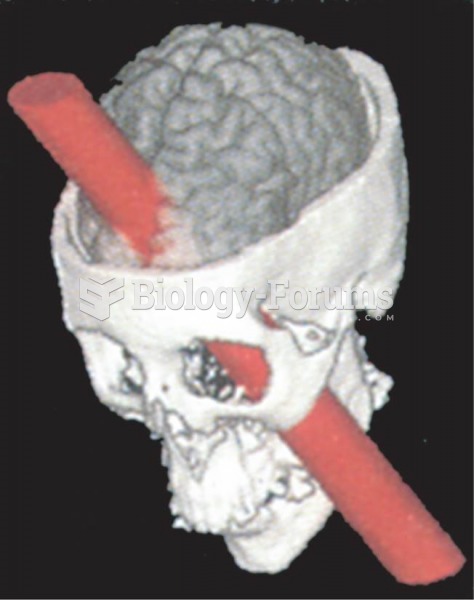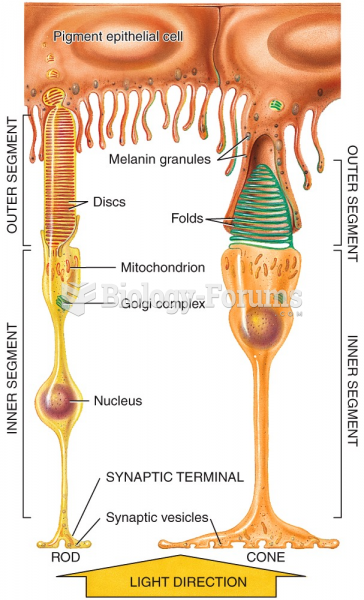This topic contains a solution. Click here to go to the answer
|
|
|
Did you know?
Many of the drugs used by neuroscientists are derived from toxic plants and venomous animals (such as snakes, spiders, snails, and puffer fish).
Did you know?
The heart is located in the center of the chest, with part of it tipped slightly so that it taps against the left side of the chest.
Did you know?
Women are 50% to 75% more likely than men to experience an adverse drug reaction.
Did you know?
To maintain good kidney function, you should drink at least 3 quarts of water daily. Water dilutes urine and helps prevent concentrations of salts and minerals that can lead to kidney stone formation. Chronic dehydration is a major contributor to the development of kidney stones.
Did you know?
The B-complex vitamins and vitamin C are not stored in the body and must be replaced each day.



![GEN. BIO. TEST HELP [EMERGENCY]](https://biology-forums.com/gallery/47/medium_126671_18_12_13_12_37_01.png)



